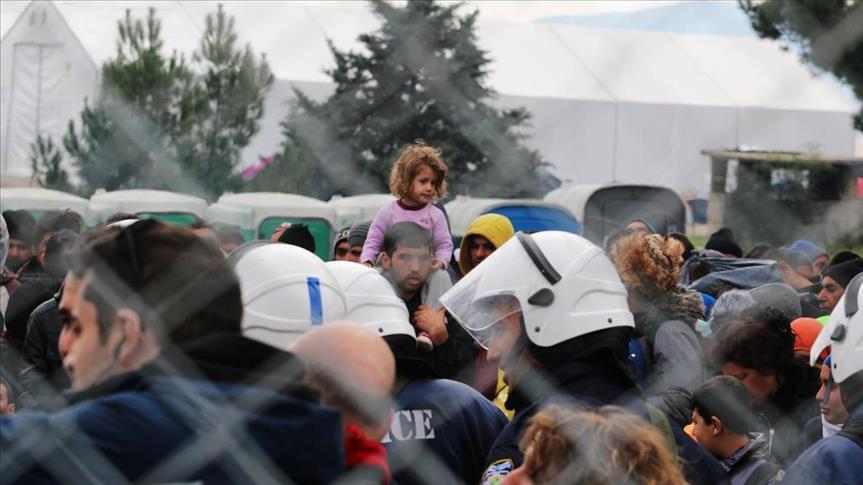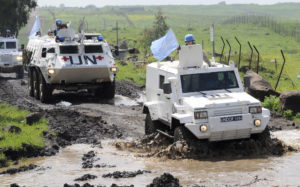Ankara, 18 Jumadil Awal 1437/26 February 2016 (MINA) – The UN has expressed concern over security measures adopted by five European countries, which aim to send back refugees to Greece, adding they exacerbate crisis and put vulnerable refugees at risk.
“In the wake of the adoption of these measures last week, the treatment of refugees and migrants moving through some of these countries already appears to have changed, with seriously negative implications for their human rights,” UN High Commissioner for Human Rights Zeid Ra’ad al-Hussein said in a written statement on Thursday.
The commissioner spoke of recent reports suggesting chain deportations “all the way down the Balkan land route, which includes Austria, Slovenia, Croatia, Serbia and Macedonia, towards Greece”, Anadolu Agency quoted by Mi’raj Islamic News Agency (MINA) as reporting.
Also Read: Activist Unfurls Palestinian Flag During German Parliament Session, Protesting Gaza Policy
He also mentioned hundreds of Afghans who were reportedly stranded in abject conditions for over five days at the border between Macedonia and Serbia.
“This extraordinary agreement by police chiefs establishes a policy across five states that includes measures which seem to be incompatible with the human rights obligations of the countries concerned, all of which are bound by international human rights and refugee law,” he warned.
“I am particularly troubled that the agreement appears to enable the collective expulsion of non-nationals, acts explicitly prohibited under international law,” added Zeid.
Zeid further urged the EU and other European states to “take steps to counter the myth-making, stereotyping, racism and xenophobia which have so distorted and politicized the migration debate, undermining efforts to govern the movements of refugees and migrants in rational ways”.
Also Read: Hundreds Rally in Stockholm to Condemn Israeli Attacks and Ceasefire Violations in Gaza
He reiterated calls by the UN refugee agency, UNHCR, and by the UN Special Rapporteur on the human rights of migrants, Francois Crepeau, to the European Union to halt continuous regressions of human rights of refugees and migrants.
The commissioner believed that the deal in the “Joint Statement of Heads of Police Services” issued on Feb. 18, appears to authorize profiling people, and limiting “entry on humanitarian grounds”, based on their nationality, and possession of identification documents.
The adoption of the police measures came after the announcement by Austria of limitations both on the number of refugees to be accepted in 2016, and on the number of people who will be allowed to transit in the country.
“These measures are exacerbating the chaos and misery all down the line, and especially in Greece, which is already overwhelmed. The up-stream border closures, are putting massive pressure on the country that is most in need of help. This could have unforeseen and devastating consequences on Greece and on the large number of people currently on its territory,” Zeid also said.
Also Read: Mass Protests Erupt in Bologna Against Israeli Teams Ahead of EuroLeague Match
Over the past year, hundreds of thousands have made short but perilous journeys in a bid to reach northern and western Europe in search for a better life.
Of the more than 1.1 million refugees who arrived in the EU last year, more than 850,000 arrived by sea to Greece from Turkey, according to the International Organization for Migration (IOM). Over the course of the year, 805 people died in the Aegean.
Over 100,000 migrants or refugees have crossed into Greece since the beginning of 2016, according to the IOM. As of Feb. 22, Greece had received some 102,547 arrivals. In 2015, migrant arrivals topped 100,000 in July. (T/P011/R07)
Mi’raj Islamic News Agency (MINA)
Also Read: Finland’s Largest Retailer Halts Israeli Product Sales
































 Mina Indonesia
Mina Indonesia Mina Arabic
Mina Arabic